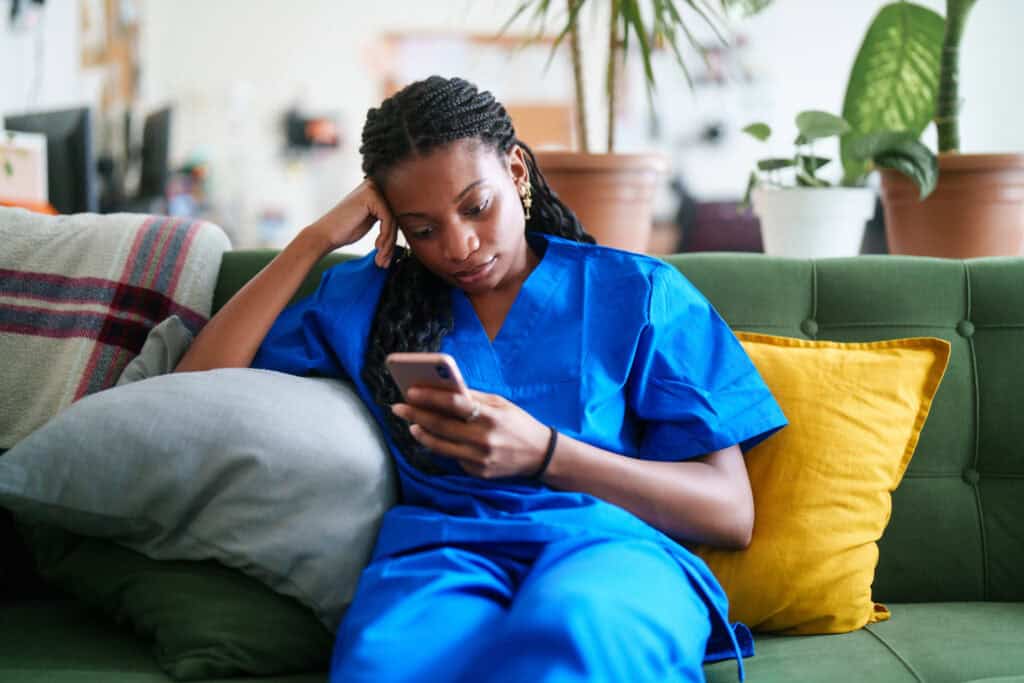
For Healthcare and Continuing Care
In the age of constant connectivity, a digital detox refers to a deliberate break from screens and digital devices to restore mental clarity, reduce stress, and improve overall well-being. Our lives are increasingly dominated by technology, which can lead to digital fatigue, decreased focus, heightened anxiety, and disrupted sleep patterns. A digital detox offers a chance to disconnect, allowing individuals to reclaim mental space and engage more deeply with real-life experiences, personal growth, and offline activities.
By the end of this session, participants will be able to:
- Identify at least three personal digital distractions and develop a plan to reduce or manage them effectively to improve mental clarity and focus.
- Describe how digital overload (e.g., constant notifications, social media, excessive information) contributes to stress, and apply two techniques to reduce that stress.
- Engage in at least one screen-free activity that supports emotional well-being, such as mindfulness, time in nature, or in-person connection, and reflect on its impact.
- Demonstrate strategies to minimize task-switching and screen time in order to increase daily productivity and creativity.
- Implement one or more sleep-friendly digital habits (e.g., creating a screen-free bedtime routine) to support healthier sleep patterns.
Improved Mental Clarity and Focus:
A break from constant digital stimuli helps clear mental fog, improving concentration and cognitive function, which enhances productivity in both work and personal activities.
Reduced Stress and Anxiety:
Taking time away from social media and digital news outlets reduces the pressure of constant comparison and FOMO (fear of missing out), leading to lower levels of anxiety and mental stress.
Better Relationships:
With reduced screen time, individuals can engage more fully in real-world interactions, improving the quality of their relationships with family, friends, and colleagues.
Restored Sleep Quality:
Reduced screen exposure, particularly before bedtime, leads to improved sleep quality, allowing for deeper rest and better overall health.
Reconnection with Nature and Offline Hobbies:
A digital detox encourages engagement with nature and offline activities such as exercise, reading, or creative pursuits, which enriches personal well-being and creativity.
Enhanced Emotional Well-Being:
Time away from screens gives individuals the space to reflect, meditate, or practice mindfulness, fostering greater emotional resilience and self-awareness.
Your presenter:
Eseosa Eweka-Valentine is a registered nurse with a Bachelor of Science in Nursing and a Bachelor of Arts in Journalism. She is a passionate advocate for mental health and the founder of Talks with Sosa, an annual event that brings together experts to discuss mental health issues. In addition, Sosa is the founder of the Salt City Advocacy Society, an organization dedicated to helping immigrant and refugee women and children settle in Canada. When she’s not organizing events or leading her advocacy efforts, Sosa enjoys biking and writing, balancing her professional pursuits with her personal interests.